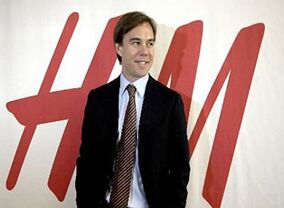H&M总裁担心环保思潮会影响整体经济
|
Karl-Johan Persson, H&M's CEO, is concerned that growing awareness about sustainability will be bad for the fast-fashion industry and the wider economy. In an interview with Bloomberg, he first took on the issue of air travel, a mode of transportation that contributes 2.5% to global emissions every year. Climate activists such as Greta Thunberg sometimes highlight the environmentalimpact of air travel: When she visited the U.S. in September, she famously came by boat.
Persson says that activists and protesters are encouraging people to engage in fewer polluting behaviors, which includes consuming and flying. "Yes, that may lead to a small environmental impact," he told Bloomberg. "But it will have terrible social consequences." Persson went on to explain that he thought that climate change is a serious concern. "It's a huge threat and we all need to take it seriously—politicians, companies, individuals," he said in the Bloomberg interview. "At the same time, the elimination of poverty is a goal that's at least as important." There are so many problems with Persson's statement it's hard to know where to start, but let me take a stab at it. It's true that any serious, global effort to tackle climate change will involve major disruptions to the economy. But as the CEO of a massive fast-fashion conglomerate, Persson is perhaps the worst possible messenger to rhapsodize about the complex economic transformation that will have to take place for us to survive climate change. For one thing, activists advocating for climate policies aren't naive about how moving toward carbon neutrality may result in short-term job losses. As my colleagues and I have reported repeatedly here at Fast Company, the Green New Deal isn't just about moving toward carbon-neutral energy sources, but also creating lots of new jobs within the green economy. |









